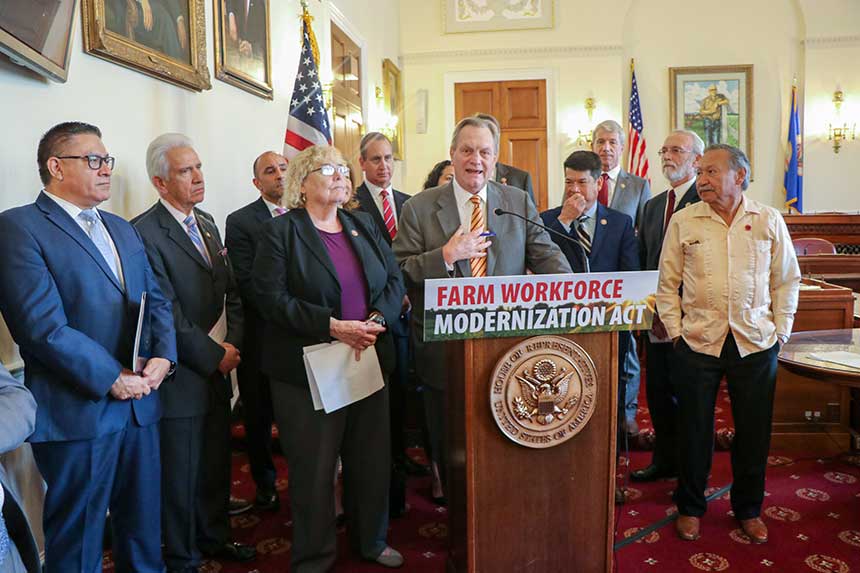Undocumented agriculture worker bill passes U.S. House
Published at | Updated at
WASHINGTON, D.C. — The House of Representatives has passed a bipartisan bill that allows undocumented agriculture workers to earn legal status.
Rep. Mike Simpson (R-Idaho) along with 19 other Republicans and 24 Democrats introduced the Farm Workforce Modernization Act in October. It passed the House with a 260 to 165 vote on Wednesday.
“Let me tell you what this bill does,” Simpson said on the House floor Wednesday. “It legalizes the current workforce, so long as you get right with the law and have a clean criminal record and can demonstrate the same work experiences … you must have to qualify.”
Some are criticizing the bill saying it provides amnesty for undocumented immigrants.
“While Congress continues to do nothing to secure our borders, passing a bill that rewards both illegal aliens and their employers, and calling it ‘modernization,’ is a slap in the face to the plurality of Americans who consider immigration to be the nation’s most pressing domestic issue,” Federation for American Immigration Reform President Dan Stein said in a news release.
RELATED: Simpson introduces bill to allow undocumented ag workers to become legal
FAIR is an immigration policy organization that advocates for stricter immigration laws and lower immigration rates.
“Granting amnesty to illegal aliens is always a bad idea, and merely attracts more illegal immigration,” Stein said.
Simpson disputed the claim that the bill grants amnesty in his statements to the House.
“If you want to access further legal status, you work four to eight more years in agriculture then pay a fine and get in line while you continue to work in agriculture. That doesn’t sound like amnesty to me,” Simpson said.
The bill does three main things. It allows undocumented ag workers to earn legal status, improves the H-2A visa program and requires E-Verify in agriculture.
To earn legal status, applicants have to show they’ve had at least 180 days of agricultural employment over the previous two years. Those who qualify and are accepted by the Department of Homeland Security would receive a five-year renewable agriculture visa. The visas could be renewed by working at least 100 days in agriculture each year.
If they want to apply for permanent residency, they must pay a $1,000 fine and if they have worked in agriculture in the United States for at least 10 years prior to the bill being enacted they must work an additional four years before they can apply for permanent residency. Or, if they have worked less than 10 years before the bill was enacted they must work an additional eight years before being eligible to apply.
The H-2A visa program allows U.S. ag employers to bring foreign workers into the country to fill employment needs. The Workforce Modernization Act would make streamline and simplify the process for employers as well as limit wage fluctuations and reduce housing costs employers have to pay to house the foreign workers.
The E-Verify system is a United States Department of Homeland Security program that allows businesses to determine the eligibility of their employees to work in the U.S. The bill requires employers to use E-Verify.
“Idaho farmers and ranchers feed the world and their greatest needs are a legal workforce and free trade, and this week we made tremendous progress on both issues,” Simpson said. “Passage of (the Workforce Modernization Act) is a giant step in the right direction for our ag industry and their need for a legal workforce through addressing unpredictable wages while expanding the H-2A Visa program to allow for the year-round workers Idaho dairies need. It will also eliminate onerous red tape from the federal government by streamlining the H2A process.”


